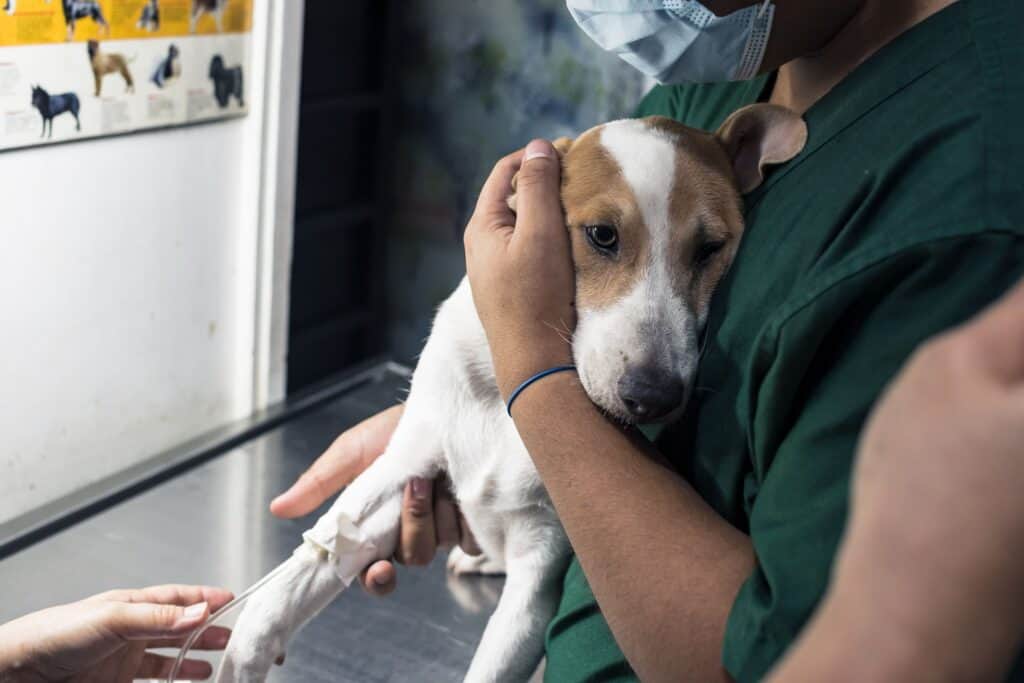What Is Canine Parvovirus: Symptoms, Treatment, and Prevention
What Is Canine Parvovirus: Symptoms, Treatment, and Prevention

There are several canine vaccinations that are vitally important for disease prevention. While we customize every patient’s care, we always recommend the canine parvovirus vaccination.
One of the most common diseases in dogs, parvovirus, can be effectively prevented throughout a dog’s life with routine boosters.
Benefits of Staying Up to Date
We know how difficult it can be to stay on top of the various elements of canine wellness. We help owners schedule initial exams and initiate follow-up appointments to complete their dog’s immunity to the many threats to their health.
The parvovirus vaccination schedule begins around 8-9 weeks of age. Puppies need a shot every 3-4 weeks until they reach about 14-16 weeks. High-risk puppies benefit from additional shots up until 18-20 weeks of age. Until they reach this point, puppies are not considered fully protected from the disease, and may be vulnerable to infection if exposed.
The first booster shot is typically conducted at their one year wellness exam and then every 3 years afterwards.
What Is Parvo?
Canine parvovirus, or parvo, is caused by a viral organism found in the stool or vomit of infected dogs. It can survive in the environment on food/water bowls, bedding, or other contaminated surfaces in spite of temperature extremes or cleaning chemicals.
Because of their developing immune systems, puppies are at heightened risk of parvo. However, senior dogs and those with serious health conditions can become very ill if infected.
What to Look For
Canine parvovirus affects the gastrointestinal tract. Symptoms can include:
- Bloody diarrhea
- Dehydration
- Lethargy or weakness
- Fever
- Appetite loss
- Vomiting
Without supportive care to control the vomiting/diarrhea and minimize effects of dehydration, canine parvovirus can be deadly. As it suppresses the bone marrow’s ability to fight infection, parvo can lead to sepsis. Even with medical intervention, some pets succumb to the disease.
Prevention Is the Best Medicine
Preventing canine parvovirus is essential to a dog’s lifelong health and vitality. Maintaining a schedule for initial vaccination and follow-up booster shots is the key. Additionally, it is important to reduce a dog’s potential exposure to the virus in public areas, including dog parks, groomers, and boarding facilities.
If you know or suspect that your dog has been exposed to the disease, and there’s been a lapse in their vaccinations, please contact us. We can diagnose the infection, help control the spread, and provide supportive care for any surfacing symptoms.
Vaccines for Puppies
Our team holds your dog’s health and wellness in the highest regard. If you have any questions or concerns about vaccines for puppies, or the lifelong approach to disease prevention, please call us at (705) 223‑3404.
